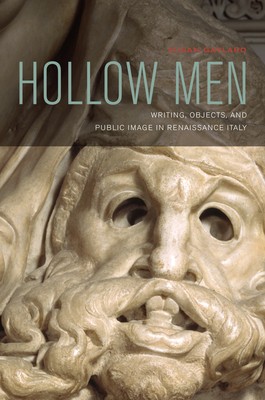
- We will send in 10–14 business days.
- Author: Susan Gaylard
- Publisher: Modern Language Initiative
- ISBN-10: 0823251748
- ISBN-13: 9780823251742
- Format: 14.7 x 23.1 x 2.5 cm, kieti viršeliai
- Language: English
- SAVE -10% with code: EXTRA
Reviews
Description
This book relates developments in the visual arts and printing to humanist theories of literary and bodily imitation, bringing together 15th- and 16th-century frescoes, statues, coins, letters, dialogues, epic poems, personal emblems, and printed collections of portraits. Its interdisciplinary analyses show that Renaissance theories of emulating classical heroes generated a deep skepticism about self-presentation, ultimately contributing to a new awareness of representation as representation.
Hollow Men shows that the Renaissance questioning of "interiority" derived from a visual ideal, the monument that was the basis of teachings about imitation. In fact, the dedecline of exemplary pedagogy and the emergence of modern masculine subjectivity were well under way in the mid-15th century, and that these changes were hastened by the rapid development of the printed image.EXTRA 10 % discount with code: EXTRA
The promotion ends in 22d.20:49:11
The discount code is valid when purchasing from 10 €. Discounts do not stack.
- Author: Susan Gaylard
- Publisher: Modern Language Initiative
- ISBN-10: 0823251748
- ISBN-13: 9780823251742
- Format: 14.7 x 23.1 x 2.5 cm, kieti viršeliai
- Language: English English
This book relates developments in the visual arts and printing to humanist theories of literary and bodily imitation, bringing together 15th- and 16th-century frescoes, statues, coins, letters, dialogues, epic poems, personal emblems, and printed collections of portraits. Its interdisciplinary analyses show that Renaissance theories of emulating classical heroes generated a deep skepticism about self-presentation, ultimately contributing to a new awareness of representation as representation.
Hollow Men shows that the Renaissance questioning of "interiority" derived from a visual ideal, the monument that was the basis of teachings about imitation. In fact, the dedecline of exemplary pedagogy and the emergence of modern masculine subjectivity were well under way in the mid-15th century, and that these changes were hastened by the rapid development of the printed image.

Reviews